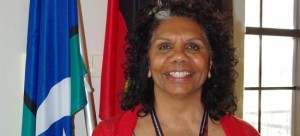
“I knew that I couldn’t go into the future to find my way, but I realised I could go into the past and that was a scary thing for me to do. I had to face the fear and do it anyway. After the women’s shelter, I unpacked my past, and one of the first places I started was my childhood,” Rosemary says.
“There was the impact of being part of the Stolen Generations and all the abuse that went with it. I also had educational experiences that were appalling, via my teachers – at twelve years old I was told Aboriginal people were savages, and earlier, when I was seven, I was told I was a dummy.”
To understand what happened to her as a result of her childhood and the racism she experienced growing up in Australia, Rosemary became a student of history. As she unpacked her childhood experiences, she began to read about Australian, English and European history.
“I found a commonality in that we weren’t the only people who had experienced an invasion and loss of language and culture. The Celts did as well (Ireland, Scotland, Wales and Britain), so these people who invaded Australia had also been invaded themselves, centuries before.
“I then looked at traditional Aboriginal culture. We were never a violent race of people. Our ancestors had grieving ceremonies whenever there was a major loss and there were grieving processes where grief, anger and rage were let out of their physical bodies. That saved them from going into violence. Family violence as we see it now in Aboriginal and Torres Strait Islander people is a learned behaviour.
“I then thought if it is a learned behaviour after four generations (since invasion), then to unlearn it we need to go through our loss and grieving processes.”
Rosemary points out that the Aboriginal and Torres Strait Islander cultures are traditional and that many of the contemporary problems, such as self-harm, didn’t exist prior to invasion.
“We have no language for self-harm at all. We didn’t have alcohol or smoke cigarettes. I knew I could unlearn these behaviours that Aboriginal people had learnt from contemporary society and I could undo these learnings by releasing loss and grief,” she says.
She spend the next five years, from 1987 through to 1991, releasing the ‘grief energy’ from her physical body. She walked off her grief and rage and wrote letters to her late mum and others, including Captain Cook, and the perpetrators of the injustices she suffered as a child.
“Letter writing was very powerful and it allowed my inner child to say what she couldn’t say at the age the abuse happened,” she says.
Rosemary used her intuition to guide her where she needed to go to heal, and in 1992 she moved to central Australia, on country, away from any distractions to get in touch with her Ancestors.
“It was a spiritual experience where my ancestors came back and communicated with me and I got in touch with my dreaming animal, the crow. It was just a matter of time before the crow was sanctioned as being my Grandfather, my mother’s father,” she says.
“After six months in central Australia, I returned to Adelaide and set up a women’s haven to help them heal from violence. I am now more aware of what abuse is and as a result I have given up alcohol and smoking, and I practise as much of my traditional culture as I can.”
With two and a half years working for the Royal Commission into Aboriginal Deaths in Custody, she saw the need for loss and grief counselling and decided to undertake a mainstream bereavement course in 1994. Following its completion, she began to adapt that course to the Aboriginal and Torres Strait Islander culture and experience of loss and grief.
Today, she considers herself to be a “very different” to the woman she was in 1987. “I am stronger and more balanced now,” she says. “When I’m out of balance – when I’m stressed out and my body, mind and spirit are in a weak state – I know something has happened to send me into anger and fear. Now I know how to process it through walking, writing and actioning and setting aside the fear. I no longer have a fear of success. If it fails, then that is okay.”
As Rosemary puts it, she is her own case study. She uses these experiences and the knowledge she has built up from her research into loss and grief and her training to counsel others and run loss and grief workshops across Australia. Rosemary supports both Aboriginal and non-Aboriginal people as she came to the realisation that loss and grief is a human experience. Her ambition is for The Australian Institute for Loss and Grief, which she founded, to become a Registered Training Organisation. She would also like to see loss and grief programs run in communities and throughout the education system.
“We need to teach young people the importance of loss and grief while they’re young so they can take this knowledge and skills into adulthood,” she says.
Having specialised in loss and grief for 25 years, Rosemary believes that many major social, emotional and health problems seen across Australian communities, such as mental and physical illnesses, have been concealed behind a wall of suppressed, unresolved grief due to many major losses, both historical and contemporary.
If you would like more information on The Australian Institute for Loss and Grief, head to www.lossandgrief.com.au
Comments are closed.